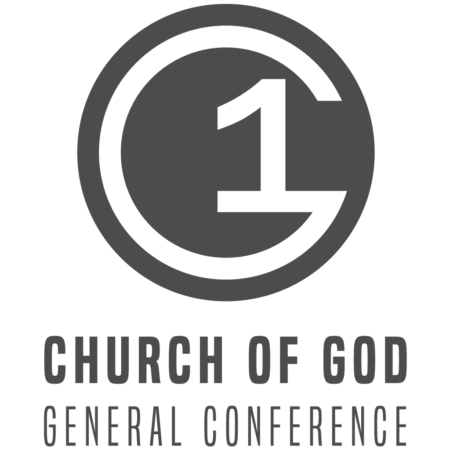 Recently “The Tentative Apologist” Dr. Randal Rauser started a series on how we should understand “mere Christianity.” He polled several of his acquaintances, including me, and I took the request to be for roughly the minimal set of claims one must agree to in order to be a part of the body of Christ, the church. I answered,
Recently “The Tentative Apologist” Dr. Randal Rauser started a series on how we should understand “mere Christianity.” He polled several of his acquaintances, including me, and I took the request to be for roughly the minimal set of claims one must agree to in order to be a part of the body of Christ, the church. I answered,
Only the one Jesus calls ‘Father’ is the one true God; the unique man Jesus is his Messiah. God the Father sent Jesus, gave him his message, empowered him, and endorsed him with deeds of power, wonders, and signs that God did through him. Jesus obeyed God’s call even to give up his life, but God raised Jesus from the dead, proving that Jesus was indeed God’s Messiah. God exalted Jesus to his right hand, making Jesus the one Lord under the one God. Jesus will return to fully establish God’s Kingdom on earth. All people should worship the one God and honor and follow his Messiah. Through Jesus we have the hope of resurrection to eternal life.
Dr. Rauser went on to comment on this confession. I’ll quote and comment on or reply to a few of his remarks. He notes, correctly, the spirit of my reply, which is to stick as closely as possible to New Testament teaching (and so, language). He then notes,
…Tuggy’s view… does not embrace the church’s later doctrines of Trinity and incarnation. Indeed, Tuggy rejects the doctrine of the Trinity as an errant post-biblical doctrine which is inconsistent with the God revealed in the New Testament.
Tuggy is happy to quote Acts 2:36: “Therefore let all Israel be assured of this: God has made this Jesus, whom you crucified, both Lord and Messiah.” He agrees heartily with Paul’s declaration in Romans 10:9 that those who declare with their mouth “Jesus is Lord” and believe that God raised him from the dead will be saved. But he rejects Nicaea and Chalcedon as errant interpretations of biblical teaching.
Yes, but notice that the statement does not require the rejection of Nicea (or the revised “Nicene” creed of 381) and Chalcedon. Some, indeed many, could convince themselves that the whole of my confession is consistent with both. I don’t think it is. But I would happily count as Christian in belief anyone who agrees with the above confession, whatever else they believe.
I don’t see why the theories people build on top of clear NT teachings should be treated as just as important as those teachings. The terms of the New Covenant were set by Jesus and the apostles; I don’t see that anyone has been given the power to add conditions of confession to the deal.
I belie ve that my statement above would have been heartily agreed to by most Christians in the years 81, 181, or 281. But after about 381, and all the more so after 451, new claims were so emphasized that many Christians would now balk at my statement as leaving out too much, as Dr. Rauser observes:
ve that my statement above would have been heartily agreed to by most Christians in the years 81, 181, or 281. But after about 381, and all the more so after 451, new claims were so emphasized that many Christians would now balk at my statement as leaving out too much, as Dr. Rauser observes:
…given the centrality of the Trinity and incarnation in historic orthodoxy, many Christians will repudiate Tuggy’s summary of mere Christianity as not simply inadequate but fundamentally flawed, even heretical.
Indeed. But let us note that “historic orthodoxy” is shorthand for “mainstream catholic orthodoxy since around mid 5th century.” While many Protestants intend that their theology is based on the NT, in fact the official creeds of most groups reflect ideas that literally no one was proclaiming in the first three centuries of the Christian movement, e.g. the truine, tripersonal god.
What role, if any, do church and creed have in defining or delimiting the boundaries of acceptable readings of Scripture?
Well, one’s church or denomination, and the creed it chooses to require, are binding on those who would be in fellowship with it. That’s the function of creeds. (Groups vary in how binding they are – i.e. whether they require belief, acceptance, hope, confession, or simply non-contradiction.)
 But I think Dr. Rauser is really asking about catholic traditions, and specifically the creeds of the “ecumenical” councils of bishops from 325-787. Here, I think most Protestants should say that we are not ruled over by bishops or assemblies of bishops, and so these ancient meetings are not considered authorities by us. Their biblical interpretations should stand or fall on their own; their origin in such meetings can’t justify them for us.
But I think Dr. Rauser is really asking about catholic traditions, and specifically the creeds of the “ecumenical” councils of bishops from 325-787. Here, I think most Protestants should say that we are not ruled over by bishops or assemblies of bishops, and so these ancient meetings are not considered authorities by us. Their biblical interpretations should stand or fall on their own; their origin in such meetings can’t justify them for us.
Back to Dr. Rauser,
And can one person’s careful and conscientious reading of the scriptures, buoyed by reason and conscience, eclipse those traditions?
Any Protestant, to be consistent, must answer in the affirmative; in these matters nothing has changed since the 1500s, except that good information on interpreting the Bible is far more abundant and widely available.
 Finally, I think it proper to point out that it is not just this Tuggy fellow who leaves aside the traditional language about Trinity and Incarnation. There have been Christian traditions who do this since what historians call the “Radical Reformation” of the 16th-17th centuries, including Christian unitarian traditions from the 16th-19th centuries, and Restorationist traditions of the 19th-21st centuries, including my own denomination, the Church of God General Conference.
Finally, I think it proper to point out that it is not just this Tuggy fellow who leaves aside the traditional language about Trinity and Incarnation. There have been Christian traditions who do this since what historians call the “Radical Reformation” of the 16th-17th centuries, including Christian unitarian traditions from the 16th-19th centuries, and Restorationist traditions of the 19th-21st centuries, including my own denomination, the Church of God General Conference.
Of course, all of these teach more than was in my statement, which again was offered as a bare minimum – “mere” Christian teaching. But like my statement, they try to stick to NT teachings and when catholic traditions clash with the NT, they go with the NT, as they understand it. We’re just more thorough-going in this that are more mainstream Protestants. And we perceive more clashes than most.

The “church”- cares more about teaching speculations than teaching truth. I find it quite funny, when people start throwing the word ‘heretic’ around. If heresy is defined as having some false idea of God , then we are all heretics at some level.
Comments are closed.